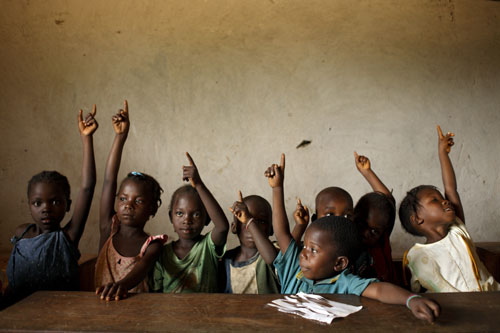 Silence never won rights. They are not handed down from above; they are forced by pressures from below. – Roger Nash Baldwin
Silence never won rights. They are not handed down from above; they are forced by pressures from below. – Roger Nash Baldwin
Today we celebrate International Human Rights Day, marking the 63rd anniversary of the signing of the Universal Declaration of Human Rights. Today is one that continues to inspire people across the globe, transcending cultures and borders, as they stand united for human rights for all men, women and children.
The promotion and protection of global human rights became a priority for the United Nations following World War II, when world united to see that the horrors of the war would not be repeated. Respect for human rights and human dignity “is the foundation of freedom, justice and peace in the world”, the General Assembly declared three years later with the Universal Declaration of Human Rights. As a result in 1950, the UN General Assembly selected 10 December as Human Rights Day (Resolution 423(V)).

The Universal Declaration of Human Rights was born from the wounds of the Holocaust, which shocked the world over and gave birth to the word genocide. As we sit in remembrance, we should note that we do not have to go back some 63 years to remember the monstrous human rights violations that face men, women and children. The situations in the DRC, Sudan, Iraq, Somalia, Iran, Sri Lanka, Gaza and Afghanistan, are only a few examples of where we should ask ourselves if we have made any significant progresses. Even though gender inequality has found a larger place on the awareness map this past year, we continue to battle for equality and education for all, and for an end to gender discrimination, child labor and all forms of modern slavery. We have gained some ground in the battle to ensure basic human rights for all. But we have a long way to go: the horrors of abuse, war and genocide still exist, and they are too often ignored as we go about our daily lives.
86% of the world’s children live in the developing world. Many lack access to primary education, and forced labor, sexual abuse, and gender inequality run rampant. A third of all children in the developing world have had some level of malnutrition by the age of five, and have little or no access to adequate healthcare. In 2011, millions upon millions of children continue to live in dire conditions. 215 million children work as child laborers, 115 million in hazardous conditions (ILO). While there has been progress, especially in regard to awareness on issues like child trafficking, the majority of problems are stagnate in the world of international politics.
It is clear that we have a long way to go yet to ensure that the Universal Declaration of Human Rights is upheld across the globe. On this Human Rights Day, let us act as a united global community and hold ourselves accountable for ensuring the rights enshrined in the Universal Declaration. Take this day not only to celebrate progress, but to resolve to act, to address the voices of those who seek their right to freedom.
Links to UN and UN System sites:
United Nations
Office of the United Nations High Commissioner for Human Rights
International Labour Organization
Unesco
UNICEF
UnitedNationsDevelopment Fund for Women
United Nations Development Programme
United Nations Research Institute for Social Development
World Health Organization
International Human Rights Links: .